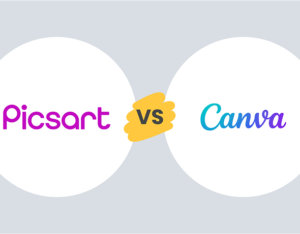Some wonder if focusing on one channel is enough to boost website traffic. In reality, giving equal attention to both PPC advertising and search engine optimization yields substantial search visibility and can guide a target audience toward a desired action.
From our experience at VH Info, combining a solid PPC campaign with consistent SEO efforts is a powerful way to take advantage of immediate results while laying a foundation for stable future growth.
This blog post examines how PPC and SEO strategies reinforce each other in a modern marketing landscape.
Key points include how SEO can inform your PPC ad copy, how paid search can reveal relevant keywords, and why organic search results can get stronger as you balance your investments in ads and technical SEO.
Addressing search intent from multiple angles can help maximize the amount of traffic your brand receives in a search engine result. That lift translates into higher conversion rate outcomes, greater brand awareness, and deeper trust with potential customers.

What Are PPC and SEO?
Pay-per-click refers to a form of paid search marketing in which you bid on specific keywords to display a paid ad in search results.
Google Ads remains one of the most popular PPC strategies, although Microsoft’s platform and social media channels also provide options to run search ads.
With PPC, you only pay when someone clicks. You can A/B test ad copy quickly, set a budget, measure search visibility, and fine-tune the PPC data you collect. These PPC efforts can bring visitors to a landing page right away, often placing your offering near the top of search engine pages. High positions come at a cost, but prime real estate can deliver immediate traffic, especially when competitive keywords are involved.
Search engine optimization is the process of creating and refining seo content, backlinks, and technical elements so your pages rank well in organic listings. SEO strategies center on matching your content creation with the search intent of your target audience.
This involves using keyword research and optimizing page titles, meta descriptions, and internal links to clarify what a page covers.
Good SEO also relies on a combination of short- and long-tail specific keywords, simple site navigation, relevant headings, fast load times, and resonates with user experience standards.
It takes time to see results, but once you start ranking on the first page, you gain a relatively stable flow of organic traffic. Coupled with social media promotion and strategic link building, an SEO plan drives brand awareness and helps you engage prospects who are ready to convert.

Does SEO Affect PPC, Or Does PPC Affect SEO?
Teams often ask how SEO and PPC work together, or if they operate in separate lanes. In practice, PPC work and SEO efforts constantly influence one another.
Here’s a closer look:
- SEO affects PPC: When your website has high-quality pages and user-friendly navigation, your landing page experience for paid search improves. A better landing page experience can lift your Google Ads quality score, potentially reducing cost-per-click. Successful SEO also yields keyword data through Google Search Console, which your paid ad team can analyze for insights. Content that ranks well can guide the ad approach: you can see which relevant keywords bring organic clicks and then decide if you should use PPC for those terms to capture a bigger share of search engine traffic.
- PPC affects SEO: Paid search can reveal quick patterns in keyword performance. For instance, if you run a PPC campaign on a test set of keywords, you’ll gather ppc data on click rates, bounce rates, and other metrics faster than your standard SEO approach might. That immediate insight helps shape your SEO strategies by confirming which relevant keywords match user intent and lead to conversions. Also, as users see your paid ads, they become more familiar with your brand. That has a modest effect on brand recognition, which can improve dwell time and conversions on your organic listing.
In short, both channels rely on a search engine’s user data and help each other refine your marketing strategies. PPC might influence the next round of content you plan for organic search, while SEO might point to a new set of terms worth allocating budget to in your next paid ad.
